Practical Tips for Budget Travel in Budapest
Budapest is one of Europe's best cities for travelers on a tight budget. This place has amazing architecture, tons of history, and great culture without the crazy high prices you'll pay in Western European capitals. The Pearl of the Danube proves you don't need to spend a fortune to have an amazing trip. From the famous thermal baths to the quirky ruin bars, you get incredible value everywhere you go.
What makes the Hungarian capital so great for budget travel isn't just that things are cheap. It's that you get real value for your money. While other European cities charge €20 or more for a meal, you can eat authentic Hungarian food for about €10. And many of the city's most beautiful sights cost absolutely nothing to see. This guide shows you how to experience all of Budapest's best parts while keeping your spending under control. Trust us, you can have an unforgettable trip without breaking the bank.
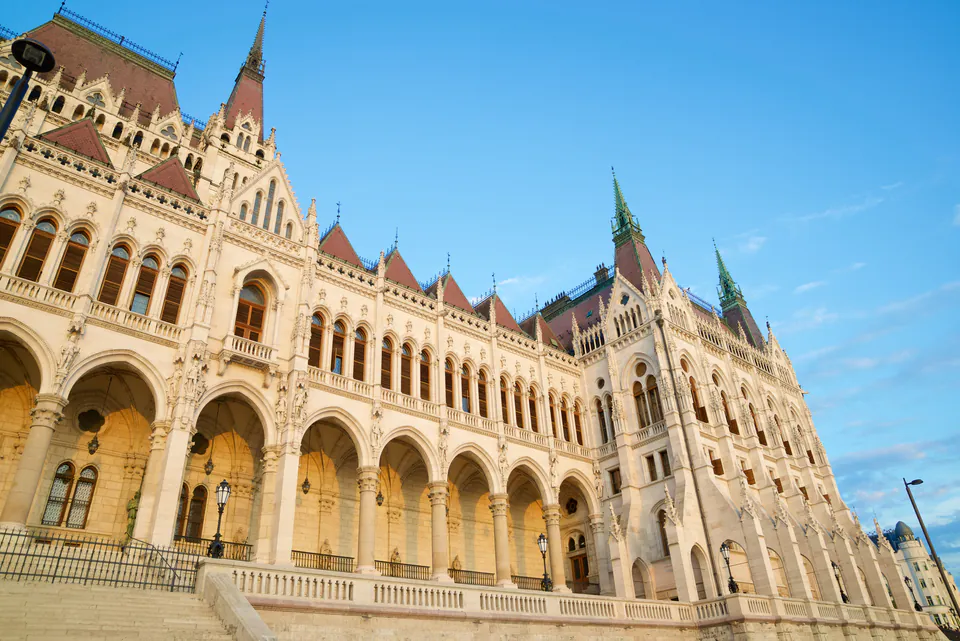
Best Times to Visit and Save Money
When you visit Budapest can make a huge difference to how much you spend. We always recommend the shoulder seasons of late spring (April-May) and early fall (September-October). The weather is really nice with temperatures between 8-23°C, and there are way fewer tourists than in summer.
These months give you the perfect mix of good weather for walking around and much lower prices for flights and hotels. You can explore the Castle District or hang out in Margaret Island without fighting summer crowds. And you'll pay 20-40% less than peak season prices.
If you really want to save money, January and February have the lowest costs all year. Sure, it gets cold (down to -1°C), but the savings on hotels and flights are pretty dramatic. Plus there are hardly any tourists around, so you get the city almost to yourself. The thermal baths are actually even better in winter when it's cold outside.
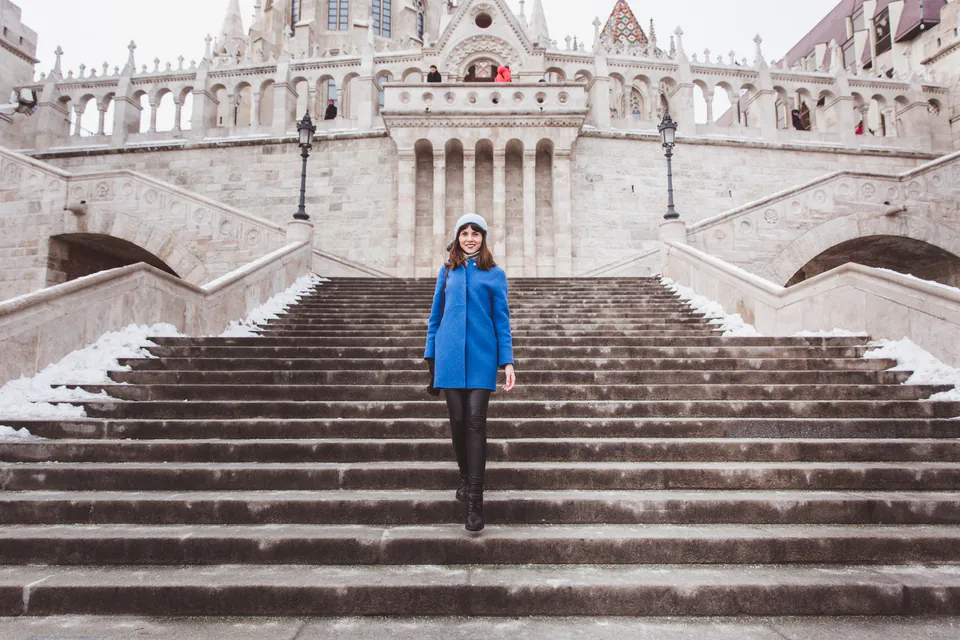
Getting There Without Spending a Fortune
Getting to Budapest cheaply is all about planning ahead and being flexible. Budget airlines like Ryanair, Wizz Air, and EasyJet fly into Ferenc Liszt International Airport all the time. Book way in advance, travel light to avoid baggage fees, and watch for airline sales.
If you don't mind taking longer to get there, buses like FlixBus are incredibly cheap from major European cities. The journey takes much longer than flying, but the savings can be worth it if you're really watching your budget. We've seen FlixBus tickets from Vienna for just €15-25, compared to €80-150 for flights during busy times.
Trains are a nice middle option, especially from nearby Central European cities. RegioJet and ÖBB have routes with pretty amazing prices. Vienna connections start around $10.50, Prague from $19.50, and Berlin from $25. These are advance booking prices for off-peak travel, but they make train trips both affordable and comfortable.
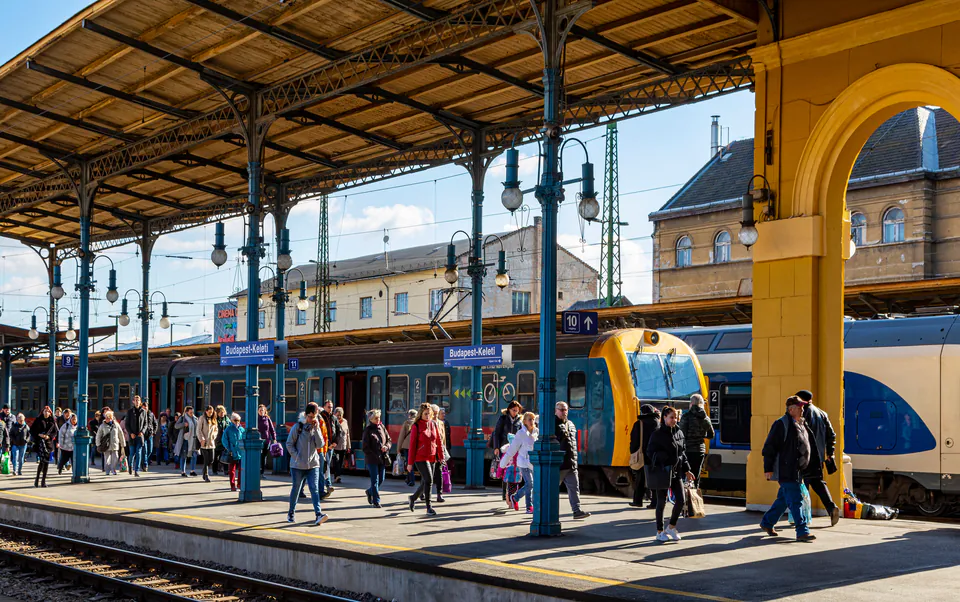
Airport to City on the Cheap
Your budget travel starts right when you land at Ferenc Liszt International Airport. The cheapest way into the city is Bus 200E plus Metro M3, which costs about 700-900 HUF total. That's way less than the 2,200 HUF Airport Express Bus 100E. This route takes 35-45 minutes and connects perfectly with the city's public transport.
Bus 200E runs 24/7 and takes you to Kőbánya-Kispest metro station, where you catch the M3 blue line into central Budapest. You need two regular public transport tickets or you can use multi-day travel passes you buy at the airport. This saves about 1,300 HUF compared to the direct airport express. That's enough for your first Hungarian meal!
Airport Transfer Options Comparison
| Transport Option | Cost (HUF) | Journey Time | Key Notes |
|---|---|---|---|
| Bus 100E (Airport Express) | 2,200 HUF | ~40 minutes | Direct to Deák Ferenc tér; requires special ticket |
| Bus 200E + Metro M3 | 700-900 HUF | ~35-45 minutes | Most economical; covered by standard passes |
| Train (via Bus 200E) | ~1,800 HUF | ~35-45 minutes | Requires transfer; some passes may cover train portion |
| Taxi | 9,000-13,000 HUF | ~35 minutes | Most expensive; direct door-to-door service |
Budget Places to Sleep
Budapest has tons of great budget accommodation options. Hostel dorm beds start from just $12-19 per night. Places like Onefam Budapest and Maverick City Lodge are really well-rated and in great locations.
The trick with hostels is booking ahead. If you book 28-62 days in advance, you get the best rates. March is the cheapest month for hostels, and you can save 37% compared to June prices. Pick hostels with kitchens where you can cook your own food. This saves a ton of money on meals.
District VII (Jewish Quarter) and District VI (Terézváros) have lots of budget hostels you can walk to all the main sights from. These central spots mean you don't need to spend money on transport, and you're right in the middle of all the action with ruin bars, cheap food, and historic sites nearby.
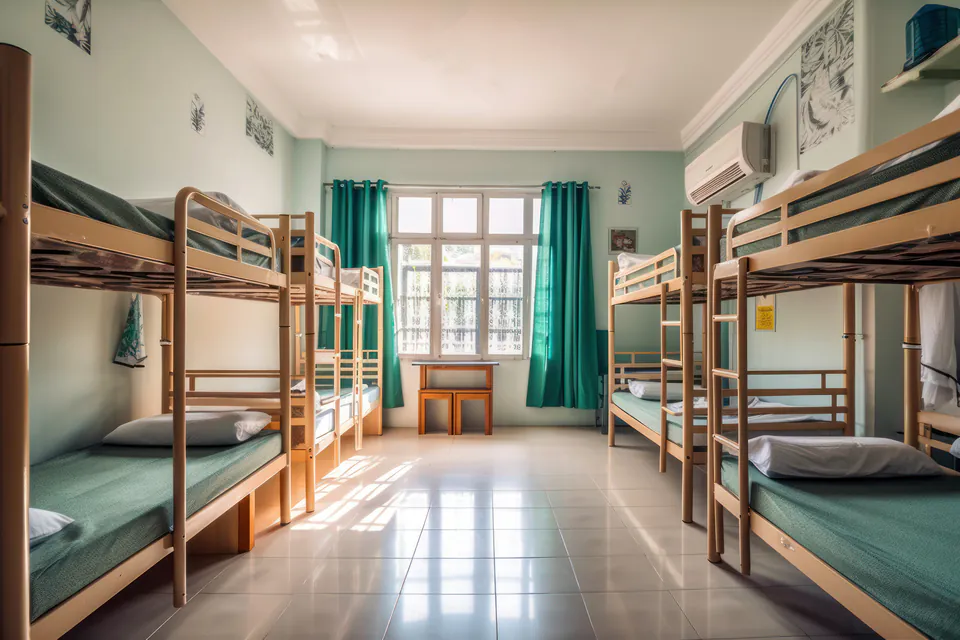
If you want something a bit more private, Hungarian guesthouses (panzió) give you private rooms at budget prices. These family-run places have a personal touch you won't get in big hotels. Rates usually start around $47 for private rooms, which is much less than similar hotel rooms.
Eating Great Food for Less
Budapest's food scene is amazing for budget travelers. You get authentic Hungarian flavors at really reasonable prices. The secret is eating where locals eat. Traditional canteens called étkezde or kifőzde serve hearty, home-style meals that show you real Hungarian cooking without the tourist markup.
Lángos is the ultimate Hungarian street food. This deep-fried flatbread usually comes with sour cream, cheese, and garlic oil. It costs just 1,000-1,800 HUF and fills you up completely. Street vendors all over the city serve fresh lángos, and the Great Market Hall has tons of options with a great local atmosphere.
Goulash (Gulyás) really is Hungary's national dish. This hearty soup with beef, vegetables, and paprika is pure Hungarian comfort food. At authentic places like Fakanál in the Great Market Hall, a bowl costs around 890 HUF. That's way less than tourist restaurant prices and the flavors are the real deal.

The magic words for budget eating are "Napi Menü" or "Ebédmenü" (daily lunch menu). These fixed-price deals at local canteens usually give you two or three courses for 2,000-3,500 HUF. That's incredible value for big, authentic meals. Good places to try include Frici Papa Kifőzdéje, Kádár Étkezde in the Jewish Quarter, and Kisharang Étkezde near St. Stephen's Basilica.
Great Market Hall (Nagyvásárcsarnok) is budget dining central. The upper level food court has Hungarian fast food classics at good prices. Fakanál Étterem gives you sit-down meals with breakfast from 790 HUF, soups around 890 HUF, and main courses usually 1,700-3,200 HUF.
For the ultimate savings, shop at Aldi and Lidl supermarkets if you can cook your own food. These stores have great selections including awesome bakery sections. Perfect for making picnics or simple meals if your accommodation has a kitchen.
Drinking on a Budget
Budapest's famous ruin bars give you unique atmosphere without crazy prices. These places are set in old pre-war buildings and courtyards. They usually don't charge entry and drink prices are reasonable. Local beer costs about 400-800 HUF, and Hungarian wine is 400-800 HUF per glass in regular pubs.
Stick to local drinks to save money and get the real experience. Hungarian beer brands like Dreher, Soproni, and Borsodi cost much less than imported ones and taste great. Hungarian wines from the country's 22 wine regions are excellent value. And trying Pálinka (traditional fruit brandy) at around 500 HUF per shot gives you a real taste of Hungarian tradition.
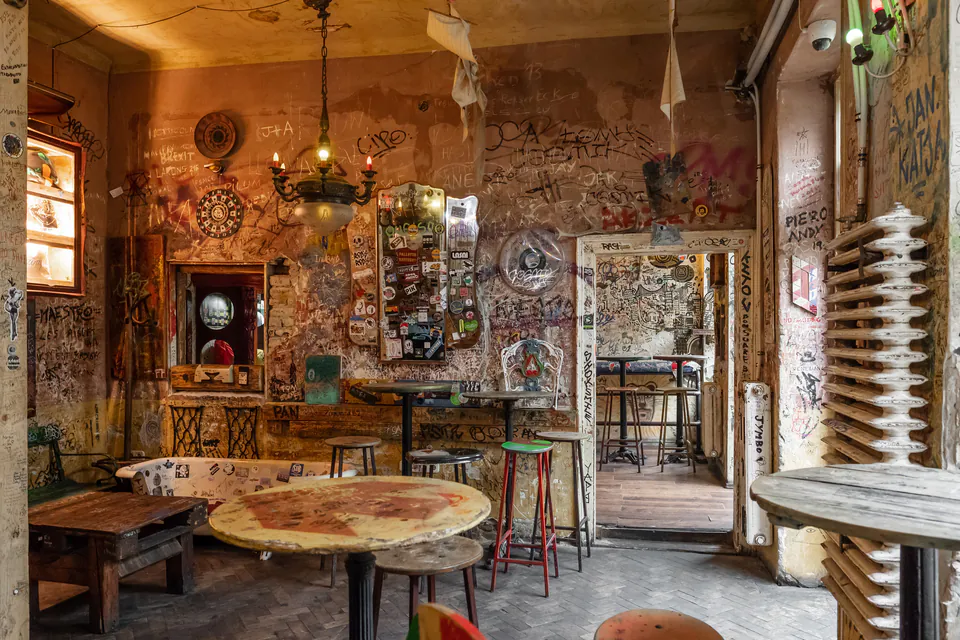
Free Things to Do
Budapest's best budget secret is how many amazing things you can do for free. The central areas are easy to walk around with good sidewalks and pedestrian areas, so exploring on foot is both nice and free.
Walking around on your own lets you see Budapest's incredible architecture without paying for tours. The Castle District has medieval streets, grand palaces, and amazing views from the lower parts of Fisherman's Bastion. All free. The Jewish Quarter has vibrant street art, historic synagogue buildings, and sets you up perfectly for ruin bar hopping later.
Margaret Island (Margitsziget) is a car-free paradise in the middle of the Danube. This green island has medieval ruins, musical fountains, Japanese gardens, and lots of walking paths. All free to explore. It's perfect for picnics with food from the supermarket, so you can relax and eat cheaply at the same time.
Gellért Hill gives you Budapest's best views if you're willing to climb. The hike costs nothing but effort, and you get incredible views of the Danube, Parliament, and both sides of the city. The Liberty Statue and Philosophers' Garden add some culture to the beautiful scenery.

Museums for Less
Budapest has tons of culture that becomes affordable if you time it right and use student discounts. Hungarian national holidays (March 15th, August 20th, and October 23rd) give you free museum admission all over the city. Perfect if your trip happens to fall on these dates.
Many museums have monthly free days. The Hungarian National Museum is free the first Sunday every month. The Hungarian National Gallery gives free access to permanent exhibitions on the third Saturday monthly for visitors under 26 and families from EEA countries.
Student discounts cut museum costs in half for visitors aged 6-26 from EEA countries or if you have a valid International Student Identity Card (ISIC). This works at major places like the Hospital in the Rock Nuclear Bunker Museum, Memento Park, and the cool cave systems at Pál-völgyi and Szemlő-hegy.
Some unique, budget-friendly museums give you different experiences. The Budapest Pinball Museum lets you play unlimited vintage machines for 5,000 HUF (3,600 HUF if you're under 26). Memento Park shows Communist-era statues for modest entrance fees around 1,500-1,800 HUF. The Hospital in the Rock reveals fascinating Cold War history under Buda Castle.
Thermal Baths on a Budget
You can experience Budapest's legendary thermal baths without spending a fortune. Széchenyi Thermal Bath has "Good Morning" tickets for weekday arrivals between 7-9 AM. You get full-day access at much lower prices. This early strategy gives you authentic thermal bathing without crowds or high prices.
Weekdays generally cost less than weekends at all the major baths. Rudas Bath has weekday tickets under €30, with special night bathing sessions (Friday-Saturday, 10 PM-3 AM) for about €35. Lukács Thermal Bath gives similar value and becomes free with the Budapest Card.
Students with BudapestGO Student Pass get huge discounts of 50-80% at historic baths including Rudas, Gellért, and Lukács. This is major savings for eligible travelers, turning luxury thermal experiences into budget-friendly adventures.

Getting Around Like Locals Do
Budapest's public transport system (run by BKK) gives you great value if you use it smart. Travel passes give you unlimited access to metros, trams, buses, and trolleybuses. They usually work out cheaper than individual tickets if you're planning to take multiple trips daily.
24-hour passes at 2,500 HUF pay for themselves after five trips. 72-hour passes at 4,150 HUF average just 1,383 HUF daily. These passes save you from constantly buying tickets and let you explore spontaneously without worrying about transport costs.
MOL Bubi bike share is another cheap transport option. Day tickets cost just 500 HUF (about €1.30), with the first 30 minutes of each ride free. This works great for short trips from point to point, and saves tons compared to private bike rentals at around $28 daily.
Public Transport Pass Value Analysis
| Pass Duration | Pass Cost (HUF) | Break-even Point | Daily Savings Potential |
|---|---|---|---|
| 24-hour pass | 2,500 HUF | 5 journeys | 500+ HUF with 6+ rides |
| 72-hour pass | 4,150 HUF | 8-9 journeys total | 1,850-4,850 HUF potential |
| 7-day pass | 6,300 HUF | 13 journeys total | 4,200+ HUF with regular use |
Money and Staying Safe
Hungarian Forints (HUF) is the money they use here. You get the best exchange rates at dedicated exchange houses in the city center, not at airports or hotels. Good ones include Money Exchange (Király u.), Change 32 (Harminckettesek tere), and Arany Change (Erzsébet krt.).
ATMs are convenient for getting local money, but say no to dynamic currency conversion and choose to be charged in HUF for better rates. Credit and debit cards work pretty much everywhere, especially in hotels, restaurants, and tourist spots. But carry some cash for smaller places and tips.
Budapest is really safe for tourists. Just use common sense and you'll be fine. Use licensed yellow taxis with company logos and displayed fare tables to avoid getting ripped off. Ride-hailing apps like Bolt show you the price upfront. Always check menu prices before ordering and pay by card when you can to avoid bill padding scams.
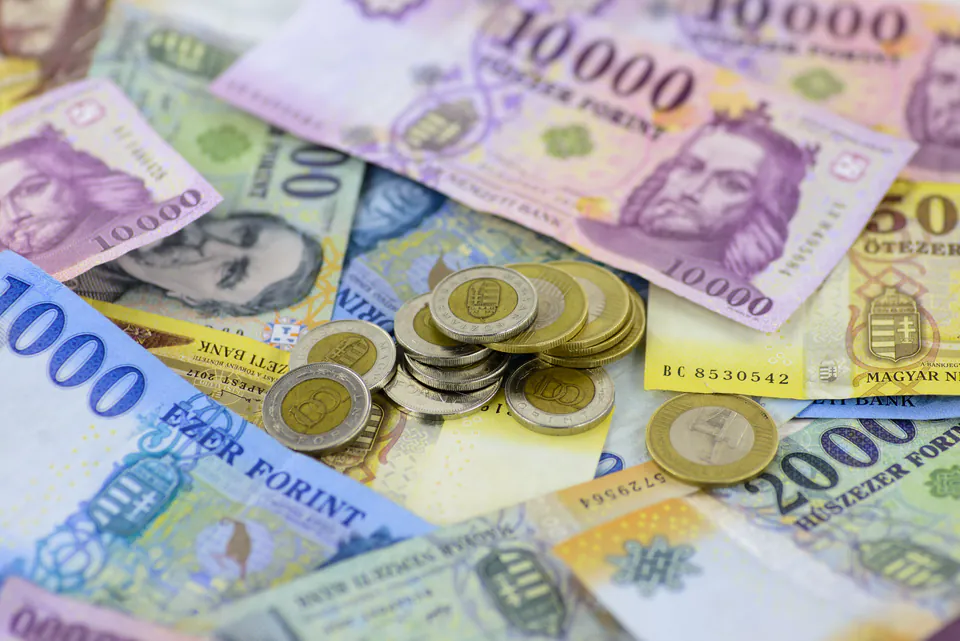
What You'll Actually Spend
A realistic daily budget for budget Budapest travel is $27-62 (€25-57 / 9,900-22,800 HUF), depending on where you sleep and what you do. This assumes you pick the cheapest options across all categories.
Accommodation in hostel dorms costs $15-25 per night. Food through street food, local canteen meals, and some cooking for yourself runs $10-20 daily. Transport using multi-day passes averages $2-7 per day. Activities focusing on free stuff and occasional low-cost experiences adds $0-10 daily.
This budget lets you have authentic Budapest experiences including thermal bath visits, traditional Hungarian meals, ruin bar nights, and comprehensive sightseeing across the city's historic areas. The key is consistently picking value-focused choices that prioritize real experiences over luxury stuff.